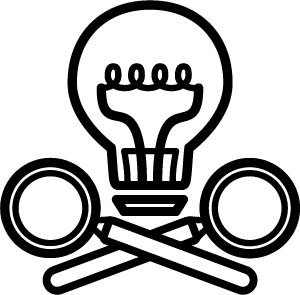For some, summer is a time to take on an internship, to travel, to spend time with friends and (if so inclined) family. For me, summer is about reading the books that the University of Chicago’s rather absurdly demanding curriculum precludes me from reading during the year. This is not to say that I don’t read during the academic year, it’s just that I’m not afforded the opportunity to read as voluminously as I’m otherwise inclined to.
Below is a list (complete with critical blurbs) of two of my favorites from the summer thus far:
Gain, by Richard Powers, 355 pp. Picador USA, 1998
Gain is the story of a woman and a company, it is one of growth and alienation. It is cold, corporate, and clinical. The novel traces the development of a fictitious company, Clare, from its humble beginnings as a soap and candle manufacturer and importer to its pervasive, expansive, Unilever-esque logical conclusion. Intertwined with this is the narrative of a woman, Laura Bodey, and her daily life in the bucolic exurban town of Lacewood, IL, which just so happens to be the home of a Clare manufacturing facility. As the twin plot lines unfold and spin themselves together, the reader notices that with the growth of one comes the decline of the other. Gain gives hints of genuine emotion, and there are moments of palpable nostalgia and sentimentality (especially in the development of Clare), but the reader is left with a feeling of corporate detachment. A poignant commentary on corporate personhood, the ethics of business development, and the alienating power of marketing, rural existence, and physical and psychological decline, Gain is a must read for those interested in ethics, entrepreneurship, or the lexical workings of the “Genius Grant” recipient, Powers.
This Side of Paradise, by F. Scott Fitzgerald. 248 pp. Library of America, 2000
An ebullient, skittering mess of a book, This Side of Paradise is the perfect novel for those that don’t read books (i.e. young people nowadays). Although most young people are first exposed to Fitzgerald in high school with the reading of The Great Gatsby, this novel, published when its author was just twenty three years old, provides a more applicable and personal meditation on the innocent pleasures of blasé youth, and the deep, adult pleasures of shedding that innocence piece by piece. The extent to which This Side of Paradise is thinly veiled memoir is unclear, though it must be said that the degree of verisimilitude between Fitzgerald and TSOP’s protagonist, Amory Blaine, is striking. Tracing Amory’s personal and intellectual growth from impetuous and pompous youth into literary snobbery during his first two years at Princeton into a real hurricane of a dalliance with a young debutanté into slow decay into post-college alcoholic turpitude and finally into what now might be referred to as indignant “adulthood,” TSOP sloshes about from one scene to another, mixing poetry, epistolary narrative, a peculiar quasi-drama in the form of a script, and careful reference to the dead white males that formed the backbone of the Jazz Age’s literary cannon. It left me with a sense of giddy self-recognition. I, like most young men, am, in whole or in part, Amory Blaine: restless, reluctantly realistic, wistful, and itching for success, the actualization of my closely-held overinflated notions of greatness. With this recognition comes the following fear: that I, like Amory, might eventually come upon realism, and, with it, resignation to the path more traveled.

Leave a Reply